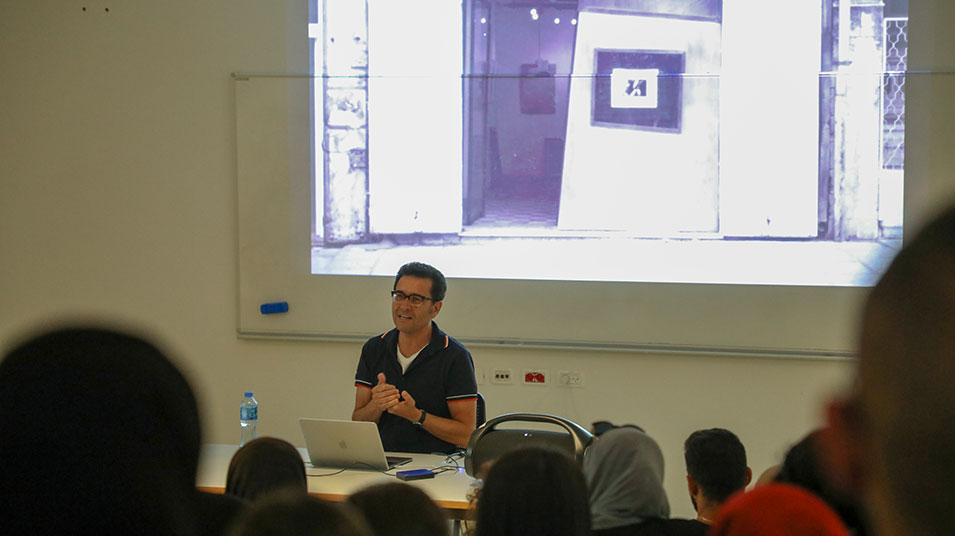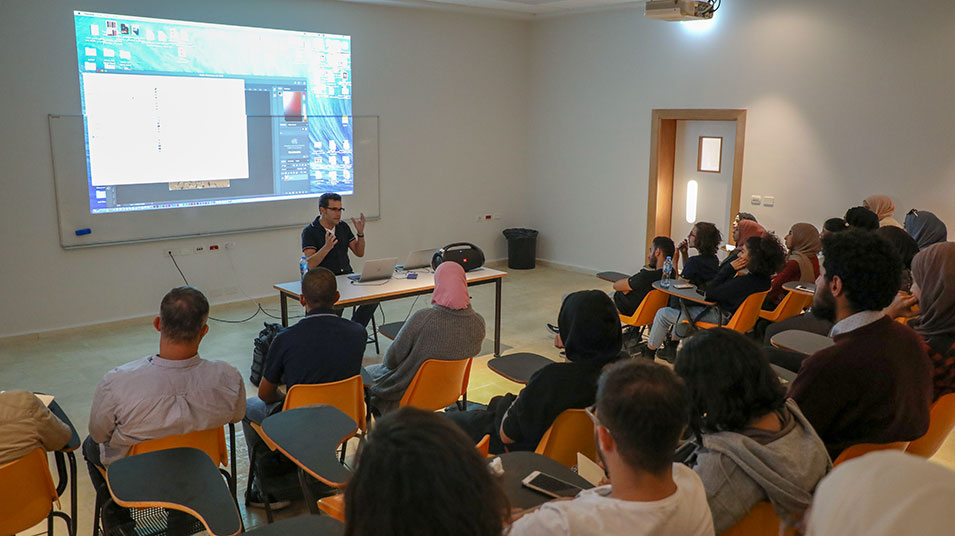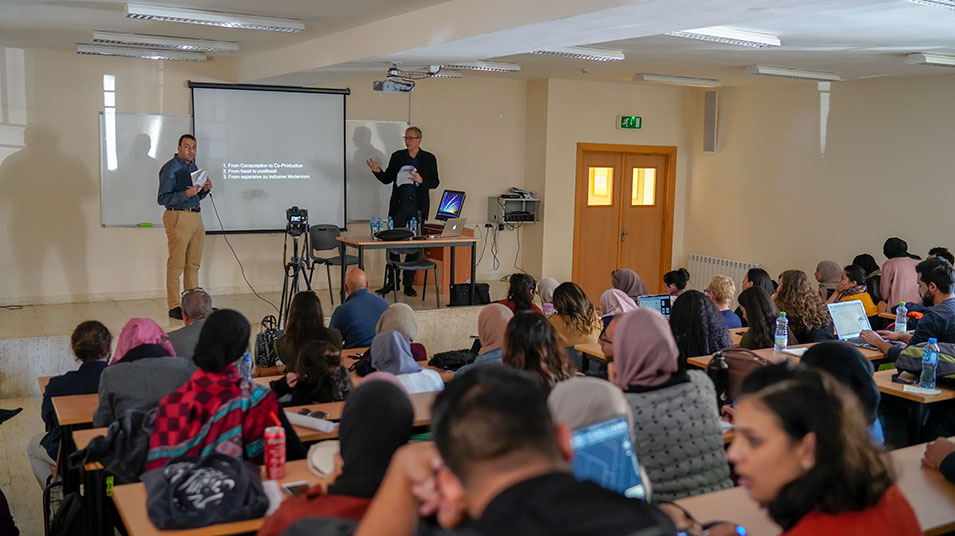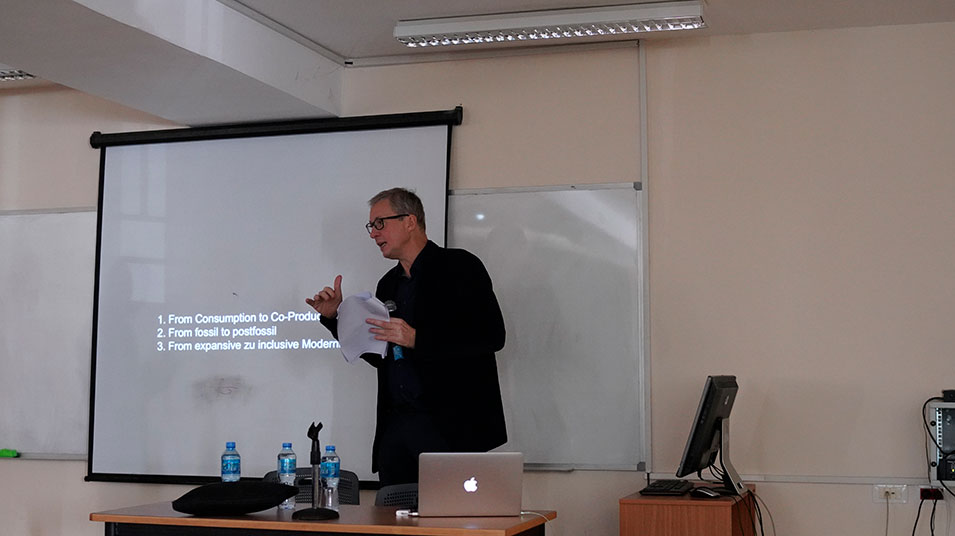Lecture series on visual arts, design and music kicks off with artists, academics on campus
Birzeit University’s Faculty of Art, Music and Design started the academic year 2019–2020 with a lecture series that presents noteworthy trends and topics in visual arts, music, and design, and features artists, curators, academics and experts.
The faculty started the series on November 5, 2019, by hosting Jack Persekian, founding director of Al-Ma’mal Foundation for Contemporary Art and of Gallery Annadiel, who shared his experience gained in thirty years of work in the the cultural sector, both in Palestine and abroad.
Students were given the opportunity for an in-depth conversation with Persekian, who initially focused on the historical, social and political contexts of the arts in occupied East Jerusalem in the 1980s, when Annadiel and Al-Mamal Foundation were established. His talk then highlighted the changing context of cultural production from the 1980s to the present day, paying special attention to the work of art institutions and artists during this time.
Persekian gave insights into how the Jerusalem Show evolved to become a major cultural event in Jerusalem’s Old City, encompassing art exhibitions, performances, workshops, talks, film screenings and guided tours that offer an opportunity for engagement and reflect on the importance of Jerusalem as an artistic, cultural, political, and social urban space. He also alluded to Qalandiya International, a biennial cultural series of exhibitions and events that is considered a model of the collective collaboration of local and international art institutions in Palestine.
On November 23, 2019, the faculty, in cooperation with Goethe- Institute in Ramallah, hosted Philipp Oswalt, a Bauhaus style specialist and architecture critic at Kassel University, Germany. In the lecture titled “Is the Bauhaus still relevant today?” Oswalt introduced the history of the German Bauhaus movement, explaining its evolvement into an ideological approach to that was embraced internationally.
The Bauhaus was both an institution and a school of thought aiming to reform the practice of arts, crafts and design in Germany in the early 20th century, later on becoming also an ideology, concept and method in architecture that strove to combine functionality and beauty in radically simplified forms.
Oswalt, an architect, was born in 1964 in Frankfurt am Main, Germany. From 1988 to 1994, he edited the architectural journal “Arch+,” and from 1996 to 1997, he worked for the Office for Metropolitan Architecture in Rotterdam with Rem Koolhaas. Oswalt held the role of Visiting Professor for Design at the Technical University Cottbus from 2000 to 2002, and since 2006 has been Professor for Architecture Theory and Design at Kassel University.
The faculty will continue its lecture series during the academic year 2019–2020.










